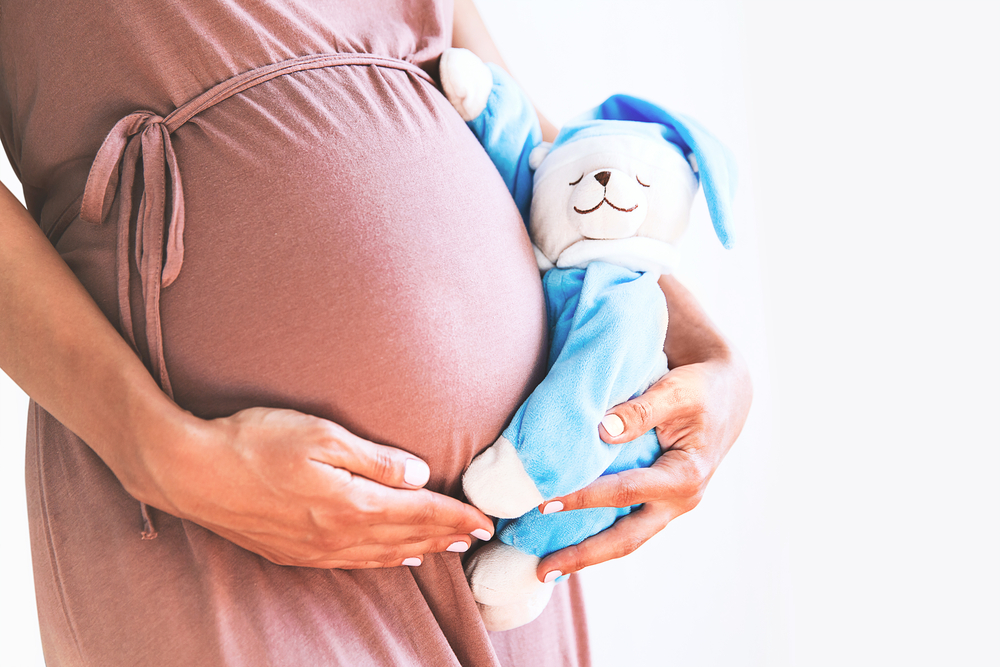Antidepressant Use During Pregnancy Doubles Risk of Persistent PH in Newborns, Study Suggests
Written by |

Use of antidepressants during pregnancy doubles the risk for persistent pulmonary hypertension in the newborn (PPHN), a systematic review of several studies suggests.
Out of the antidepressants analyzed, researchers proposed sertraline (brand name Zoloft, marketed by Pfizer) as the best choice for use during pregnancy as it was seen to carry the lowest risk of pulmonary hypertension to infants.
The review study, “Prenatal Exposure to SSRIs and SNRIs and Risk for Persistent Pulmonary Hypertension of The Newborn: A Systematic Review, Meta-Analysis and Network Meta-Analysis,” was published in the journal American Journal of Obstetrics & Gynecology.
Antidepressant use has risen markedly in the last decade, including among pregnant women. In fact, it is estimated that as many as 20% of pregnant women experience some type of depressive disorder. This has led to increased concerns about the harmful effects of these agents on delivery outcomes and the health of newborns.
Prenatal exposure to selective serotonin reuptake inhibitors (SSRIs) or serotonin-norepinephrine reuptake inhibitors (SNRIs), which are commonly prescribed antidepressants, has been associated with an increased risk for preterm birth, low birth weight, spontaneous abortions, postpartum hemorrhage and cardiac defects, poor neonatal adaptation syndrome, and PPHN.
Join the PH forums: an online community for people with Pulmonary Hypertension.
PPHN occurs when the pressure in the blood vessels supplying blood to the lungs of a newborn baby remain high after birth. This results in a lack of oxygen in the body, and can be fatal if not treated.
Conflicting data exists regarding how antidepressants impact PPHN. In 2011, the U.S. Food and Drug Administration issued an announcement stating there is no clear evidence linking SSRIs use to an increased risk of pulmonary hypertension in the newborn, and physicians were advised not to change their current clinical practice for women taking these medicines.
Now, a team led by researchers at the Hebrew University of Jerusalem in Israel performed a comprehensive analysis of several published studies to more effectively answer the question of whether exposure to antidepressants during pregnancy increases the risk for PPHN.
The study used pooled data from 11 prior reports, which included 156,978 women and their children exposed to SSRIs or SNRIs during pregnancy.
PPHN was identified among 452 newborns, which translates to a rate of 2.9 cases per 1,000 live births.
A meta-analysis of all studies showed that the risk for PPHN was significantly increased for newborns whose mothers were exposed to either SSRIs or SNRIs during any trimester of their pregnancy. A quality-adjusted analysis determined that this risk was more than twice that of women who did not take antidepressants.
When the same analysis was restricted to the late stages of pregnancy — defined as exposure to antidepressants after week 20 — the risk of PPHN was also twice as high.
Of all the SRRI medicines evaluated (sertaline, fluoxetine, ciatlopram, paroxetine, and escitalopram), sertraline was seen to be the safest, ranked as the least likely to threaten newborns with pulmonary hypertension.
The lower risk for PPHN associated with sertraline is biologically plausible, since sertraline has also been reported to cross the placenta significantly less than other SSRIs, the researchers say.
“Our results indicate that clinicians treating women with depression and anxiety during pregnancy should be aware of the apparent increase in PPHN associated with these medications and encourage them to discuss the risks and benefits of the treatment with their patients,” the researchers wrote.
Although the investigators consider the increased risk small, it justifies close monitoring and follow-up of infants exposed to such agents in the womb.
The team also emphasized that “sertraline ranked as most likely to have the lowest risk for PPHN compared to other SSRIs, suggesting it may have the best safety profile for use in pregnancy in this regard.”



